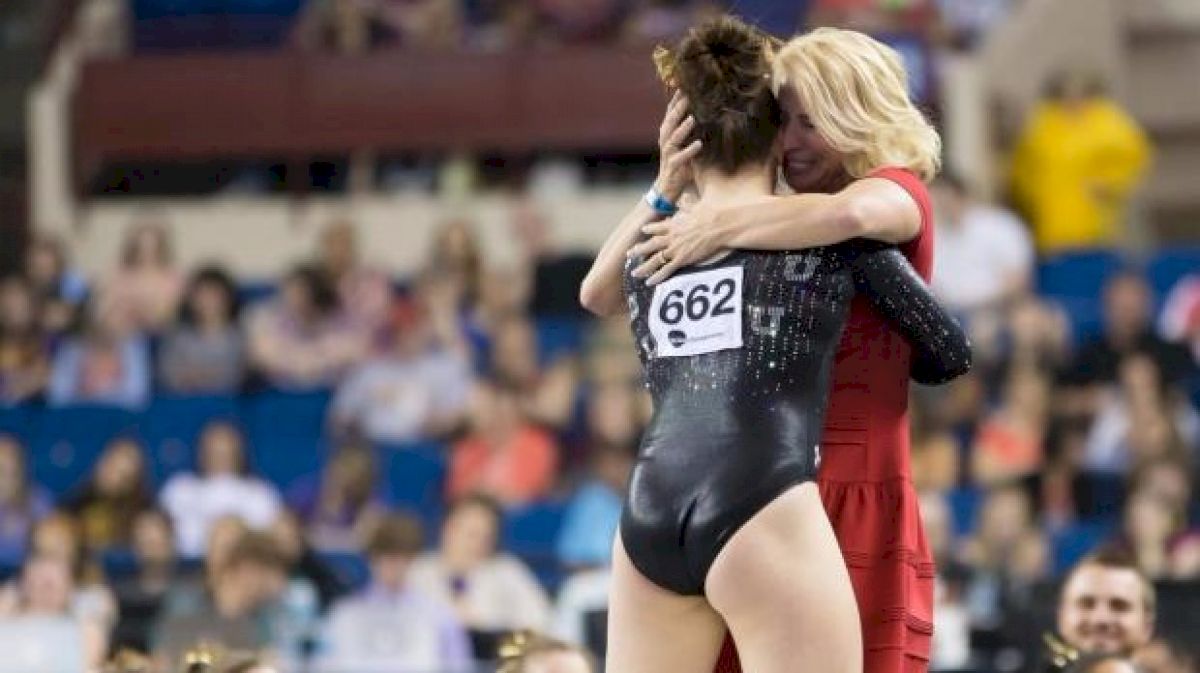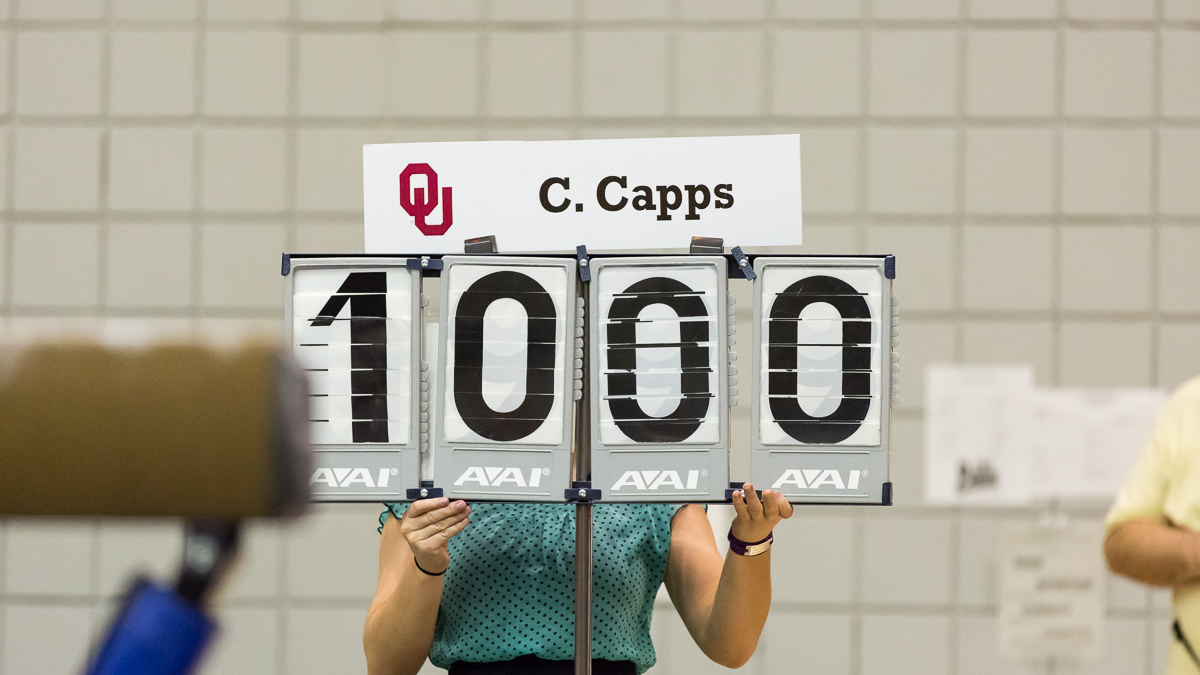The Coaching Paradigm: What Does It Take To Be The Best?
The Coaching Paradigm: What Does It Take To Be The Best?
In the NCAA, there are a few fairly obvious ways to determine the success of a Head Coach. The easiest way to measure a coach’s success is by the number of

In the NCAA, there are a few fairly obvious ways to determine the success of a Head Coach. The easiest way to measure a coach’s success is by the number of NCAA Championship trophies boasted by a program. There are some coaches that immediately come to mind when you think of long-standing coaches with a winning tradition. Sarah Patterson (University of Alabama), Suzanne Yoculan (University of Georgia), Valorie Kondos Field (UCLA), Rhonda Faehn (University of Florida), Greg Marsden (University of Utah), and KJ Kindler (University of Oklahoma) are all coaches who will go down in history as some of the best NCAA Women’s Gymnastics coaches of all time.
If the determining metric is the number of NCAA Championship titles, it’s clear who the winners are: Greg Marsden and Suzanne Yoculan. With 10 titles apiece, they each left their own mark on college gymnastics that changed the sport forever. But, the question is this: is it really the number of NCAA titles that make someone “the best?” Or is there a different way to quantify the success of coach?
Maybe we could consider the number of student-athletes who have won individual titles? Or we could tally the number who have competed internationally during or after their time as a college athlete? How many have gone on to compete at the Olympic Games? Who has more Conference Championships? Who has recorded the most 10.0s? Who holds the record for the highest team total? Who has the smallest injury rate? Should we perform a survey that former student-athletes complete to let the world know what the experience was like under their respective head coaches?

It’s possible that the answer to this question has nothing to do with any of the aforementioned metrics. I have a theory that the best head coach can be determined not by their ability to coach gymnasts (though that’s obviously important), but by their ability to coach other coaches. In this regard, the coach that stands out the most to me is the former Head Coach of the University of Utah, Greg Marsden. Not only did he have an incredible career that lasted 40 years, but he accomplished the task of training his assistants to take the figurative reigns of NCAA Gymnastics.
Once he retired, his wife, Megan Marsden, took over the program alongside Tom Farden. Considering this is their first year without Greg, we will have to wait and see how their inaugural year turns out. However, Utah is currently ranked 5th and the team seems to be performing well. However, these two taking over isn’t the first evidence of Greg Marsden passing down a tradition of excellence. In fact, he may have set off a chain reaction, helping to cultivate some of the best coaches on the scene right now.
Six years ago, Jeff Graba was leaving his position at the University of Utah to become the new head coach for Auburn University. In those few years, Coach Graba has taken Auburn from being a mediocre (if not unreliable) post-season team to being a team that can compete with anyone in the country. Last year, they made their first Super Six run since 1993. Graba has been named SEC Coach of the Year three times. His personal success and the team’s recent success speak for themselves. But, that’s not the end of the chain reaction.

Under Coach Jeff Graba’s guidance, coaches Jenny Rowland and Kurt Hettinger became the 2015 NCAA Co-Assistant Coaches of the Year. In addition to those accolades, Jenny Rowland was quickly hired to replace Rhonda Faehn as the Head Coach of the University of Florida’s Gymnastics Team. As her first season as Head Coach comes to a close, Coach Rowland has knocked down plenty of SEC Rivals, has helped her athletes record several 10.0s for the record books, and currently holds the No. 2 spot in the rankings. In her first year as a head coach, Rowland will be fighting for a National Championship.
If Greg Marsden had never began his incredible career, the outlook of NCAA Gymnastics may be very different right now. He helped put women’s gymnastics on the map, had a phenomenal career coaching his athletes, and gave his assistant coaches the gift of strong leadership. It takes a good coach to win national titles, but it takes a great coach to teach the next generation how to accomplish that same level of success. John Maxwell embodied this idea perfectly when he said, “A leader is one who knows the way, goes the way, and shows the way.”
If the determining metric is the number of NCAA Championship titles, it’s clear who the winners are: Greg Marsden and Suzanne Yoculan. With 10 titles apiece, they each left their own mark on college gymnastics that changed the sport forever. But, the question is this: is it really the number of NCAA titles that make someone “the best?” Or is there a different way to quantify the success of coach?
Maybe we could consider the number of student-athletes who have won individual titles? Or we could tally the number who have competed internationally during or after their time as a college athlete? How many have gone on to compete at the Olympic Games? Who has more Conference Championships? Who has recorded the most 10.0s? Who holds the record for the highest team total? Who has the smallest injury rate? Should we perform a survey that former student-athletes complete to let the world know what the experience was like under their respective head coaches?

It’s possible that the answer to this question has nothing to do with any of the aforementioned metrics. I have a theory that the best head coach can be determined not by their ability to coach gymnasts (though that’s obviously important), but by their ability to coach other coaches. In this regard, the coach that stands out the most to me is the former Head Coach of the University of Utah, Greg Marsden. Not only did he have an incredible career that lasted 40 years, but he accomplished the task of training his assistants to take the figurative reigns of NCAA Gymnastics.
Once he retired, his wife, Megan Marsden, took over the program alongside Tom Farden. Considering this is their first year without Greg, we will have to wait and see how their inaugural year turns out. However, Utah is currently ranked 5th and the team seems to be performing well. However, these two taking over isn’t the first evidence of Greg Marsden passing down a tradition of excellence. In fact, he may have set off a chain reaction, helping to cultivate some of the best coaches on the scene right now.
Six years ago, Jeff Graba was leaving his position at the University of Utah to become the new head coach for Auburn University. In those few years, Coach Graba has taken Auburn from being a mediocre (if not unreliable) post-season team to being a team that can compete with anyone in the country. Last year, they made their first Super Six run since 1993. Graba has been named SEC Coach of the Year three times. His personal success and the team’s recent success speak for themselves. But, that’s not the end of the chain reaction.

Under Coach Jeff Graba’s guidance, coaches Jenny Rowland and Kurt Hettinger became the 2015 NCAA Co-Assistant Coaches of the Year. In addition to those accolades, Jenny Rowland was quickly hired to replace Rhonda Faehn as the Head Coach of the University of Florida’s Gymnastics Team. As her first season as Head Coach comes to a close, Coach Rowland has knocked down plenty of SEC Rivals, has helped her athletes record several 10.0s for the record books, and currently holds the No. 2 spot in the rankings. In her first year as a head coach, Rowland will be fighting for a National Championship.
If Greg Marsden had never began his incredible career, the outlook of NCAA Gymnastics may be very different right now. He helped put women’s gymnastics on the map, had a phenomenal career coaching his athletes, and gave his assistant coaches the gift of strong leadership. It takes a good coach to win national titles, but it takes a great coach to teach the next generation how to accomplish that same level of success. John Maxwell embodied this idea perfectly when he said, “A leader is one who knows the way, goes the way, and shows the way.”